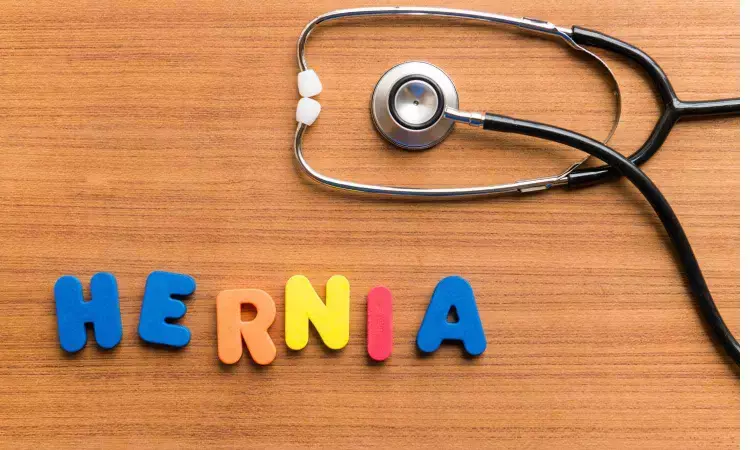- Home
- Medical news & Guidelines
- Anesthesiology
- Cardiology and CTVS
- Critical Care
- Dentistry
- Dermatology
- Diabetes and Endocrinology
- ENT
- Gastroenterology
- Medicine
- Nephrology
- Neurology
- Obstretics-Gynaecology
- Oncology
- Ophthalmology
- Orthopaedics
- Pediatrics-Neonatology
- Psychiatry
- Pulmonology
- Radiology
- Surgery
- Urology
- Laboratory Medicine
- Diet
- Nursing
- Paramedical
- Physiotherapy
- Health news
- Fact Check
- Bone Health Fact Check
- Brain Health Fact Check
- Cancer Related Fact Check
- Child Care Fact Check
- Dental and oral health fact check
- Diabetes and metabolic health fact check
- Diet and Nutrition Fact Check
- Eye and ENT Care Fact Check
- Fitness fact check
- Gut health fact check
- Heart health fact check
- Kidney health fact check
- Medical education fact check
- Men's health fact check
- Respiratory fact check
- Skin and hair care fact check
- Vaccine and Immunization fact check
- Women's health fact check
- AYUSH
- State News
- Andaman and Nicobar Islands
- Andhra Pradesh
- Arunachal Pradesh
- Assam
- Bihar
- Chandigarh
- Chattisgarh
- Dadra and Nagar Haveli
- Daman and Diu
- Delhi
- Goa
- Gujarat
- Haryana
- Himachal Pradesh
- Jammu & Kashmir
- Jharkhand
- Karnataka
- Kerala
- Ladakh
- Lakshadweep
- Madhya Pradesh
- Maharashtra
- Manipur
- Meghalaya
- Mizoram
- Nagaland
- Odisha
- Puducherry
- Punjab
- Rajasthan
- Sikkim
- Tamil Nadu
- Telangana
- Tripura
- Uttar Pradesh
- Uttrakhand
- West Bengal
- Medical Education
- Industry
Geriatric nutritional risk index significantly associated with major complications after emergency femoral hernia: Study

Researchers have found that the Geriatric Nutritional Risk Index (GNRI) is a valid and easy tool to predict major postoperative complications in patients undergoing emergency surgery for femoral hernias. A recent study was conducted by Qiuyue Ma and colleagues which was published in the journal BMC Surgery.
Emergency femoral hernia surgeries are associated with a significant risk of complications. Effective tools for the identification of patients at increased risk of adverse outcomes would be very helpful in managing the situation better. This study analyzed the prognostic value of GNRI, an index that includes preoperative body weight, height, and serum albumin levels, in predicting postoperative complications among emergency femoral hernia patients.
Methods
This was a cross-sectional study involving 105 patients who had undergone emergency surgery for femoral hernias. GNRI was calculated using the following formula:
GNRI=(1.489×serum albumin[g/L])+(41.7×body weight [kg]/ideal weight [kg]).
Patients were stratified into three nutritional risk categories:
• Low risk: GNRI ≥ 98
• Moderate risk: GNRI 92–97.9
• Severe risk: GNRI < 92
The primary outcome was the incidence of major postoperative complications, which were analyzed using univariable and multivariable logistic regression models. The discrimination of GNRI was evaluated by the area under the curve (AUC).
Key Findings
Prevalence of Nutritional Risk:
• Low risk: 18.1%
• Moderate risk: 25.7%
• Severe risk: 10.5%
Complication Rates:
• Five patients (4.8%) had major postoperative complications.
GNRI and Complication Risk:
• Higher GNRI correlated with lower complication risk.
• Adjusted odds ratio (aOR): 0.90 (95% CI: 0.81–1.00, p=0.044).
Prediction Ability of GNRI
• AUC for GNRI for the complications was 0.812 (95% CI: 0.640–0.984, p=0.019).
• Optimal cut-point: 90.96 (sensitivity: 80.0%; specificity: 72.0%).
There's significant association of GNRI with the risk of developing serious postoperative complications within patients who have emergency femoral hernia. Indeed, as a simple prognostic tool, GNRI serves effectively as a means of clinching clinical results before conducting surgery, thereby exposing a critical role of the nutrition condition in perioperative treatment.
Reference:
Ma, Q., Liu, X., Liang, C. et al. Geriatric nutritional risk index as a predictor of major postoperative complications in emergency femoral hernia patients. BMC Surg 24, 412 (2024). https://doi.org/10.1186/s12893-024-02727-2
Dr Riya Dave has completed dentistry from Gujarat University in 2022. She is a dentist and accomplished medical and scientific writer known for her commitment to bridging the gap between clinical expertise and accessible healthcare information. She has been actively involved in writing blogs related to health and wellness.
Dr Kamal Kant Kohli-MBBS, DTCD- a chest specialist with more than 30 years of practice and a flair for writing clinical articles, Dr Kamal Kant Kohli joined Medical Dialogues as a Chief Editor of Medical News. Besides writing articles, as an editor, he proofreads and verifies all the medical content published on Medical Dialogues including those coming from journals, studies,medical conferences,guidelines etc. Email: drkohli@medicaldialogues.in. Contact no. 011-43720751


